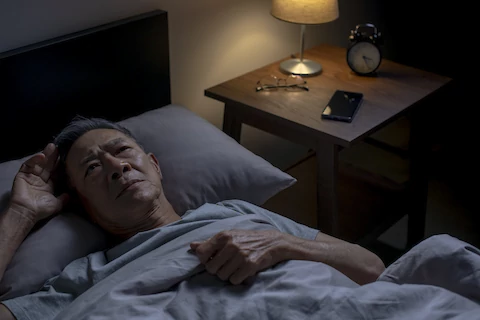
Dementia-related sleep disturbances are a significant challenge for both seniors and their caregivers. A good night's sleep is essential for maintaining overall health, and this is especially true for individuals affected by dementia. If your loved one is struggling with nighttime restlessness, it can be disheartening to see their sleep quality suffer. But don't worry—there are strategies you can use to help improve their sleep and well-being.
Manage Nighttime Restlessness
Establishing a consistent sleep schedule can help regulate their internal clock and make it easier for them to fall asleep and stay asleep. Encourage your loved one to engage in physical activity during the day. This can help tire them out and promote better sleep at night. Be mindful of their caffeine and alcohol intake. Consider offering a light snack before bedtime, as hunger can sometimes contribute to restlessness.
Create a Soothing Bedtime Routine
Developing a calming bedtime routine can help signal to your loved one that it's time to wind down and prepare for sleep. Encourage activities such as listening to soft music, reading a book, or offering a gentle massage to help them relax. Be cautious of exposing them to screens and bright lights before bed. This can interfere with their ability to fall asleep. Practicing relaxation techniques, like deep breathing or meditation, can also be beneficial in easing your loved one's transition to sleep.
Improve the Sleeping Environment
The environment in which your loved one sleeps can play a significant role in their ability to rest comfortably. Ensure that the bedroom is cool, dark, and quiet, as these factors are conducive to quality sleep. Provide a comfortable and supportive bed that caters to their individual preferences and needs. Using nightlights can help prevent disorientation if they wake up during the night, and removing any clutter or hazards in the bedroom can minimize the risk of falls or confusion.
Addressing Underlying Health Issues or Medications
Sometimes, medications and underlying health issues cause sleep disturbances. Consult with a healthcare professional to identify potential causes of their sleep problems and discuss possible solutions.
When to Consider Seeking Professional Help
If your loved one's sleep disturbances are significantly impacting their quality of life and that of supporting loved ones, it may be time to consider seeking professional help. In-home care or respite care services can provide additional support and relief for caregivers, while specialized dementia caregivers can offer an environment tailored to the unique needs of individuals with dementia.
Turn to Senior Helpers Sarasota-Bradenton for Support
Addressing dementia-related sleep disturbances is essential for maintaining the well-being of seniors affected by this condition. By implementing strategies such as managing nighttime restlessness, creating a soothing bedtime routine, adapting the sleeping environment, and addressing underlying health issues or medications, you can help your loved one achieve better sleep and improved overall health.
If you live in Sarasota, Bradenton, Longboat Key, or Siesta Key and are seeking professional help caring for a loved one with dementia in the evenings or any time of day, contact us at Senior Helpers Sarasota-Bradenton for compassionate and expert care.